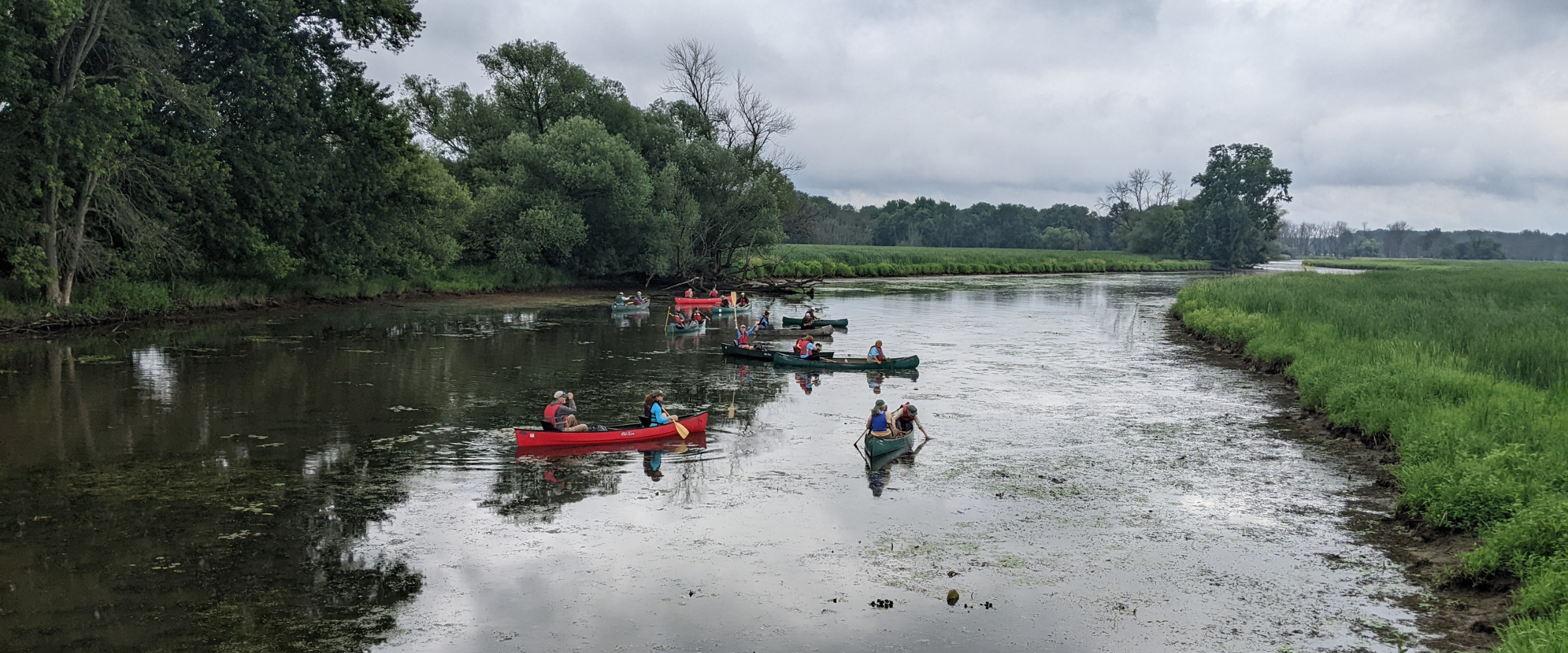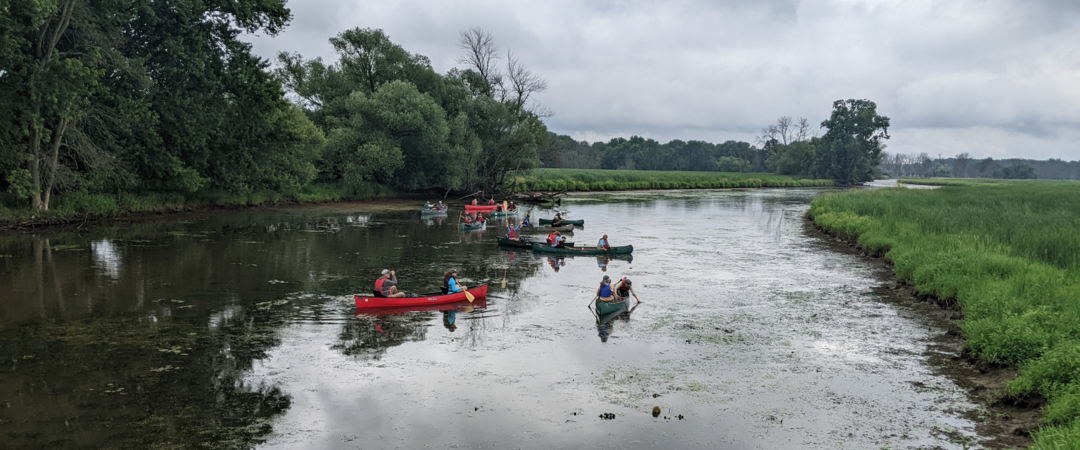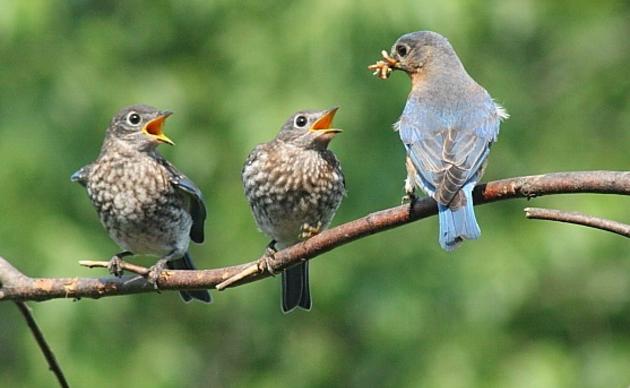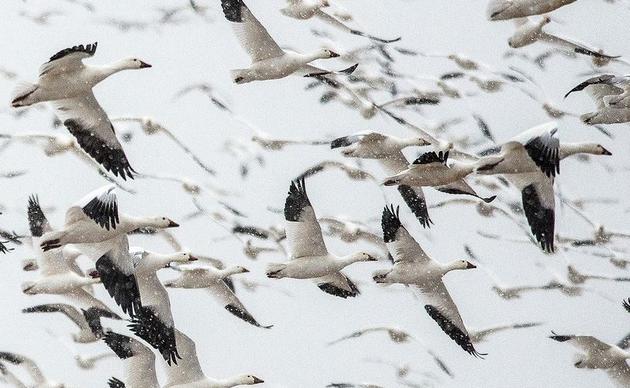For most people, water chestnuts are something you might add to a salad or a stir fry for a bit of needed crunch. For volunteers at the Montezuma Wetlands Complex, however, they’re a nuisance at best and a long-standing adversary at worst.
Water chestnut (Trapa natans) is an aquatic plant, native to Europe but brought to the United States in the 1870s where it has since spread wildly across the country, including to the Finger Lakes region. It clogs waterways, causing problems for native plants, wildlife, and recreationists.
“It’s a nasty invasive,” said Felicia Paradise, wildlife technician for the New York State Department of Environmental Conservation. Water chestnut removal is a large part of her position. “It forms large mats that block out light from the water,” she explained. “This depletes oxygen levels, which in turn negatively impacts fish and the invertebrates they eat and may result in fish die-offs.”
For birds like Osprey, Bald Eagles, and Great Blue Herons, these die-offs can be disastrous, especially during the time of year when they are raising their young.
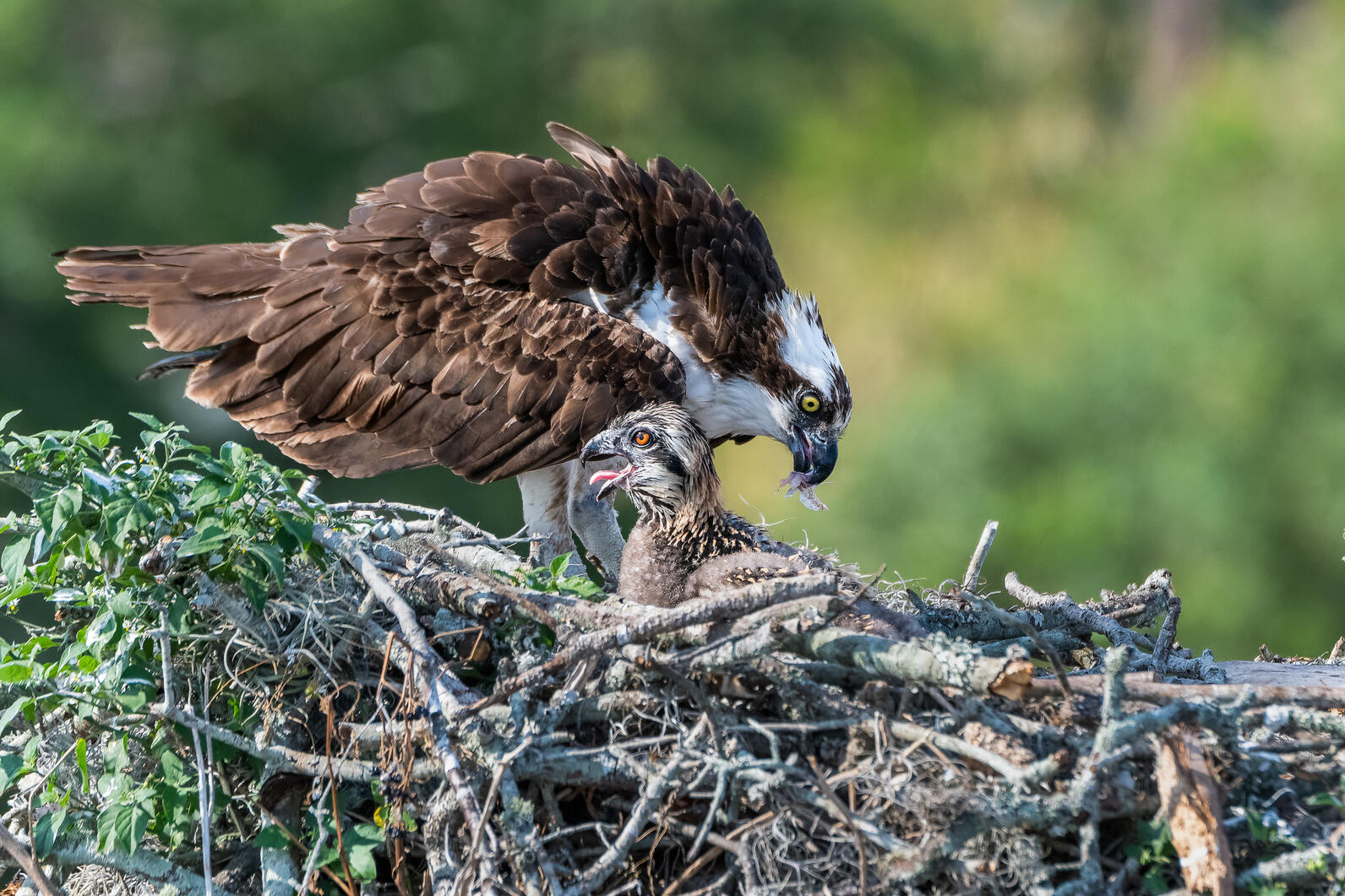
Thankfully, Montezuma has the MARSH!: Montezuma Alliance for the Restoration of Species and Habitats. Referred to fondly as “MARSHians”, MARSH! volunteers spend four full days in July pulling water chestnut. The timing is especially important for this plant, whose seed pods harden into something reminiscent of a ninja star by the end of the summer, making them more difficult—and sometimes painful—to remove. Once they harden, the seeds can also remain viable for over a decade.
During this past summer, they removed 10 whole acres of the plant, amounting to over a ton of water chestnut removed. This was the work of 26 staff across the Montezuma Wetlands Complex and 37 volunteers, including 10 who are part of the growing Youth Leadership Program.
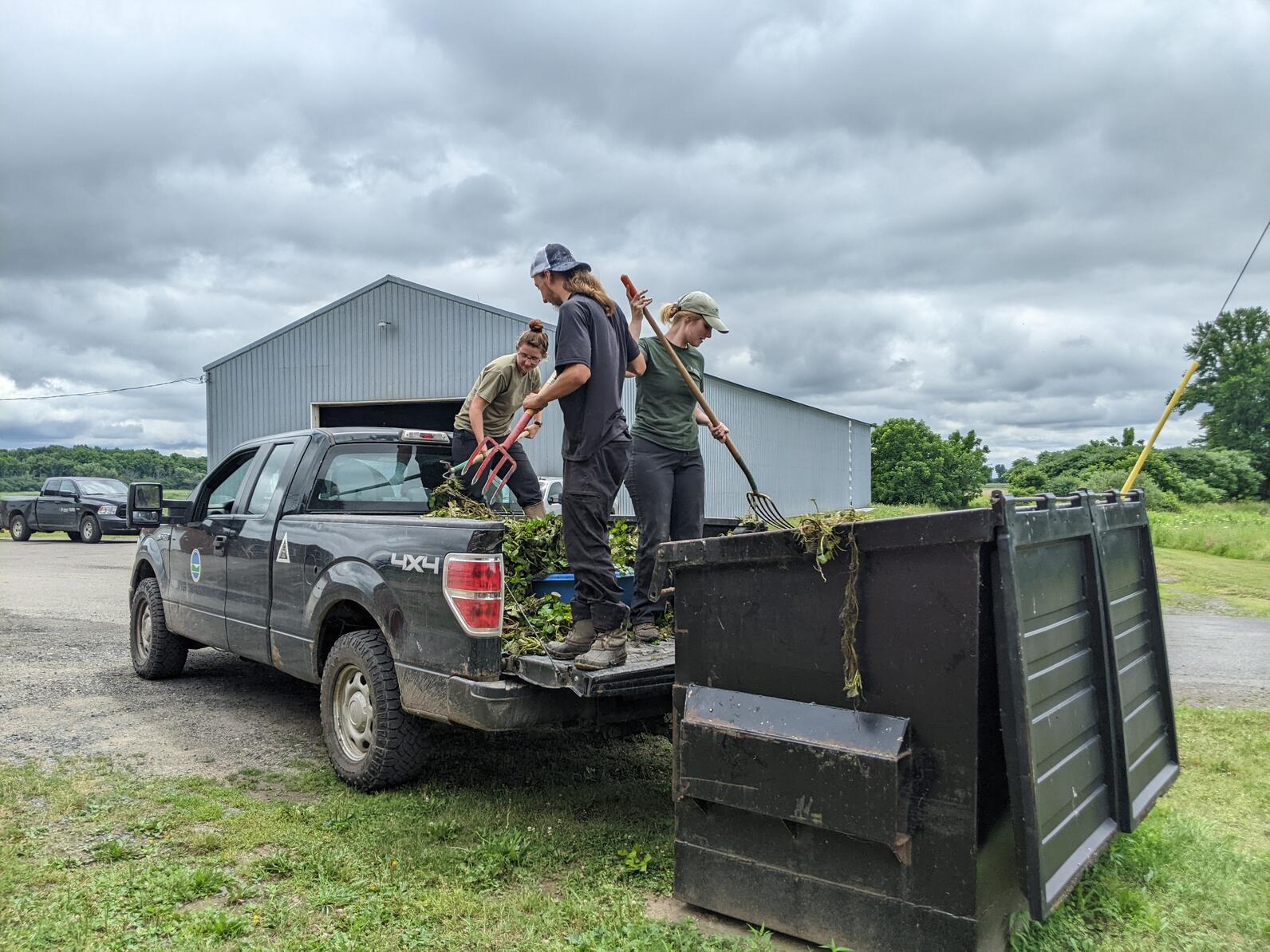
Comprised of middle school, high school, and even some college-aged students, the Youth Leadership Program provides youth with volunteer opportunities that have a direct impact on the local environment. Not only that, but it connects them with a network of fellow volunteers and employees of organizations like Audubon New York, the NYS DEC, and the United States Fish and Wildlife Service.
“After years of working with elementary school-aged kids, we were seeking opportunities to get older kids not only involved, but continuously so,” explained Chris Lajewski, center director for the Montezuma Audubon Center. “This program gives youth skills and experiences to build resumes and college applications.”
Felicia Paradise agrees. "It's really great seeing these young folks doing it and making an impact," she said.
Chris looks forward to a time where they will be able to bring on these youths not only as volunteers, but as interns, or even employees. “Montezuma Audubon Center’s Youth Leadership Program will incorporate fresh voices and perspectives into our work and empower diverse young conservation leaders to build a better world for birds and people.”
If you're interested in becoming a MARSHian yourself, visit this link to find out how to get involved with MARSH!

